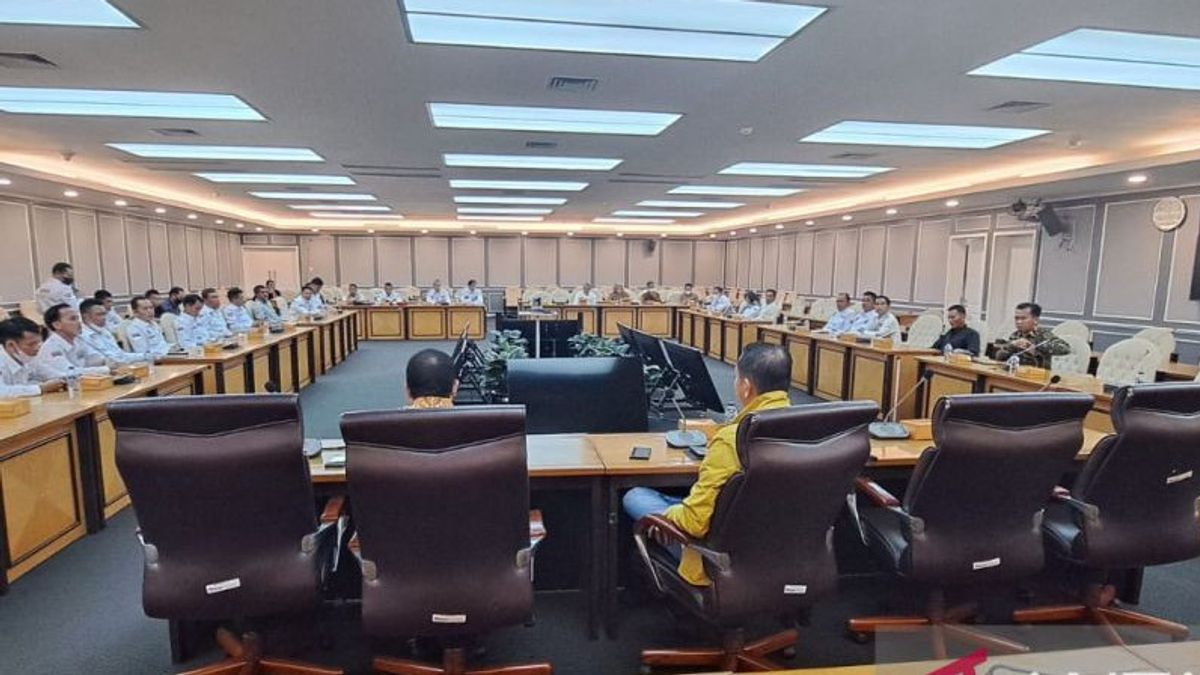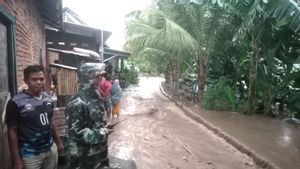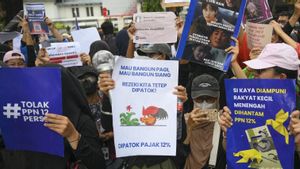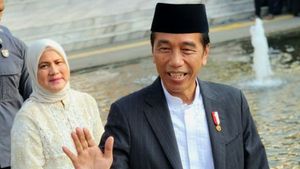Central Bangka Regent, Bangka Belitung Islands Province, Algafry Rahman has begun to respond to the government's plan to issue a policy to prohibit tin exports.
"As a tin-producing region, of course, we need to address it, especially since we can't deny that the community's economy still depends on tin production," he said after holding a meeting with Commission VII DPR RI to discuss the fate of people's tin mining, in Koba, Antara, Friday, December 9.
The regent and all village heads met directly with members of Commission VII DPR RI Bambang Pati Jaya, who is the legislator for the Electoral Region (dapil) Bangka Belitung, discussing and discussing the impact on people in tin-producing areas on the policy of prohibiting tin exports.
"It is necessary to review again related to the plan to close tin exports, so that our people can still provide and enjoy the mining process in this area," he said.
Member of the Indonesian House of Representatives Bambang Pati Jaya understands and promises to bring the aspirations of the people of Central Bangka Regency regarding tin problems.
" “ We have listened to the aspirations of village heads regarding various problems in society and indeed the community is starting to worry about the plan to stop tin exports and downstream in 2023," he said.
According to him, it does take the right planning and mitigation to address the tin business and downstreaming of tin products.
"Indeed, we have not fully supported the plan to issue a policy to prohibit tin exports," he said.
Previously, the Director General of Mineral and Coal (Minerba) of the Ministry of Energy and Mineral Resources, Ridwan Djamaluddin, at the Indonesia Tin Conference 2022 in Jakarta some time ago, revealed the reason for the export ban was because the downstream absorption of lead beams (tin ingot) was still very low at 5 percent.
"Of the many products, only approximately 5 percent are downstream from domestically managed tin ingots. This is the largest homework when the ban on tin ingot exports occurs," said Ridwan, who is currently the Acting Governor of Babel.
According to Ridwan, tin beam absorption downstream is still not optimal. He is worried that the domestic industry will not be able to accommodate the tin ingot supply once the export ban is issued.
He said that from the data collected, there are not many downstream industries that can absorb downstream tin ingots. On the other hand, downstream industries such as automotive and electronics that already have their own supply chain networks.
"When downstreaming becomes an obligation, how can we prepare ourselves, for example, lest we can make it but cannot sell it," he said.
The English, Chinese, Japanese, Arabic, and French versions are automatically generated by the AI. So there may still be inaccuracies in translating, please always see Indonesian as our main language. (system supported by DigitalSiber.id)








